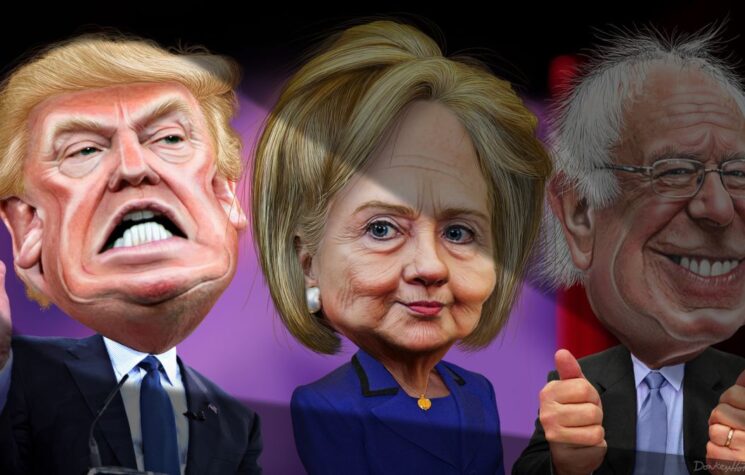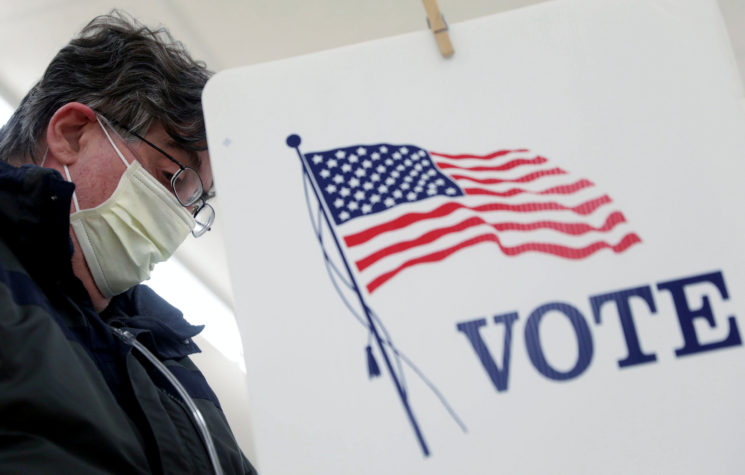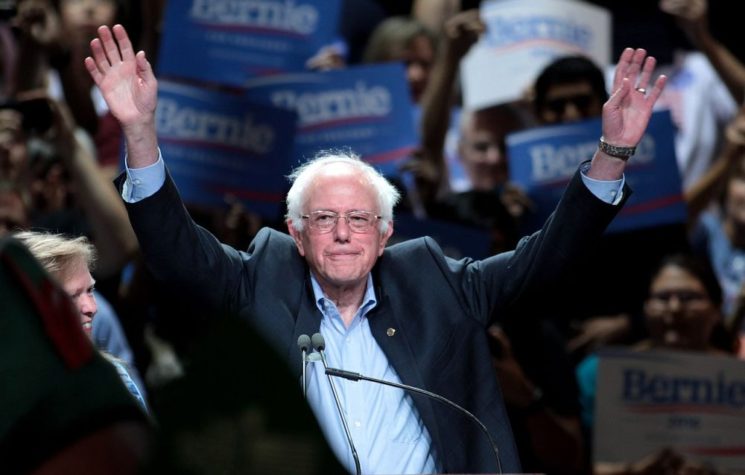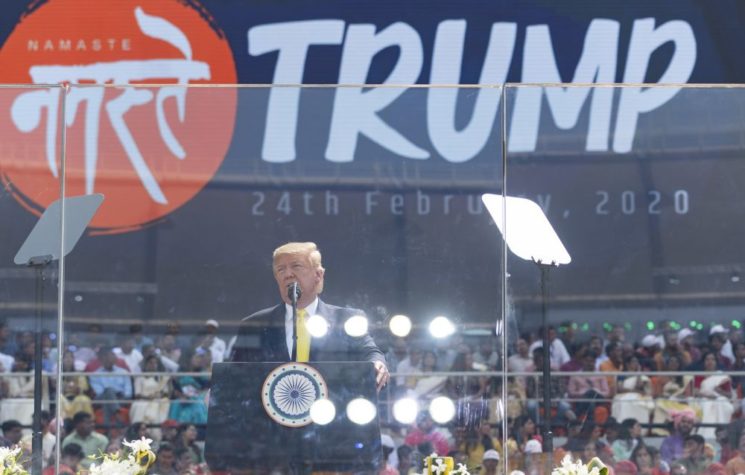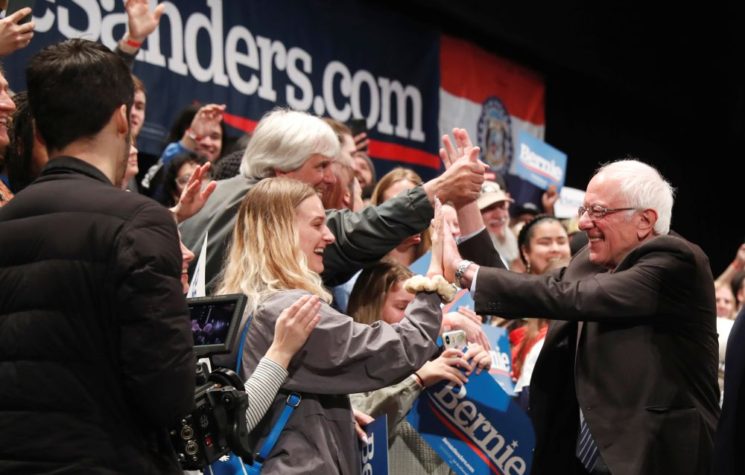Right now the DNC is working hard to see if they can sabotage Sanders’ campaign by pressuring him to take a moderate stand – a change of position – on any one of his main pillars: universal healthcare, student debt cancellation, and the $15 an hour minimum wage.
The idea is to convince Sanders’ campaign strategists that in so doing, he will receive better media coverage from DNC friendly corporate outlets like CNN and MSNBC, and as a result of this moderation will become more electable for swing voters. But why would this sabotage his campaign?
The answer lies in the UK, where we saw Jeremy Corbyn lose because he could not formulate a clear position on Brexit. There was some ill-conceived belief that against Johnson, the Remain vote even among some Tories would go to Corbyn, and that some positive media coverage – given the Remain tendencies in British corporate media as well as the center-left – would be his to enjoy. All that was required, they thought, was a nice and vague Rorschach position on Brexit. Surely Corbyn’s mistaken strategists and ‘insider friends’ were either misguided or were charged with the task of misguiding Corbyn.
There is really not much more to it than that. The rest are details at best, and plainly wrong ideas about what went wrong – plainly wrong ideas like Corbyn’s alleged antisemitism or being too-far left.
If that was the real score, then Galloway’s new Worker’s Party would have been founded on Blairite domestic economic policy and a Zionist approach to foreign policy, and a Remain position on the EU. Because Galloway has his fingers on the pulse, the fact that the WP was founded on the opposite of these three media-imagined points helps to show us why Corbyn really lost.
Yet Corbyn’s thorough destruction at the polls in the UK last December is continuously used by American corporate media pundits as some kind of analogy for what awaits Bernie Sanders and the Democrat ticket come November. Of course the real ploy is to get Sanders to make the same mistake as Corbyn.
For Corbyn and Labour, it was the worst outcome since 1935. Dangling concern over this kind of defeat in front of Sanders is meant to push him closer to the establishment center of American politics.
But this ‘concern’ isn’t coming from Sanders’ camp, but from those in or close to the DNC establishment who don’t like Sanders. Those folks in turn break-down into roughly two camps: those who think he will ultimately defeat Trump but push forward a social democratic agenda that threatens a solidified cultural shift and change of the tax codes for the very same elites in charge of the DNC, and then those who think his agenda is too radical to defeat Trump. For two different reasons then, corporate media and DNC pundits promote that the Democrat candidate ought to be more of a ‘moderate’. As such, these aren’t genuine concerns – no – these amount to ‘concern trolling’.
While certainly Sanders will have a difficult time defeating Trump, he along with Gabbard are the only two left who had the potential to win. But Gabbard’s open war on the DNC and Clinton has left her excluded from both media space and the debate floor. Consequently, the momentum she had been building was effectively crushed. In that sense, the ticket boils down to Sanders. In terms of electability – Bloomberg, Buttigieg, and Biden all have the aura of varying stripes of sociopathy about them. For that reason alone perhaps, they had been elite favorites at the top level. Mayor Pete and Sleepy Joe had their turn, now its Mini Mike’s.
Will Trump Win?
Trump could still win, with play and room for error in his own strategy and messaging, whereas Sanders will have to get both of those exactly right to stand a decent chance. Rahm Emanuel and other DNC insiders have been trotted out on corporate media to say that the history of elections in general indicates Trump’s chances at victory are strong and so the Democrat candidate needs to appeal to centrist moderate voters. While Trump’s chances are strong, however, it’s important not to make Emanuel’s error in thinking elections in this new populist paradigm work by the same rules and logic as those before.
In Emanuel’s antiquated view, the DNC candidate has to be a Bill Clinton to defeat Bush 41, so that Trump is a one-term president. Nothing could be further from the truth.
The difference is that in the older model a Democrat candidate would talk more ‘populist’ left at the primary stage but then proceed closer to the establishment center as the campaign focusses on the Republican rival. But in the new model a successful candidate must run as a ‘populist’ all the way to the finish line. That’s what Emanuel and the DNC gets wrong, and also partly explains Clinton’s defeat four years ago.
And so with this great race ahead of us, American citizens are being hit over the head with some absurd notion that Sanders is making the same errors as Corbyn, and that this will surely lead to his defeat.
In reality, they want to do to Corbyn what they did to Sanders. With Corbyn it was easier, because Corbyn has much stronger negative numbers than Sanders.
It’s unclear where Corbyn really stood on Brexit, and that was the problem. But clearly his strategy was to shore up support from Remainers and hope that other establishment criticisms of him might then be mitigated. Corbyn found himself stuck between the rock of his opposition to Blairite neoliberalism and the hard-place of Brexit ambiguity.
But while Labour has had ideologically neoliberal candidates in leadership, they’ve never had a literal billionaire like Bloomberg.
During the South Carolina debate on February 25th, tickets were $1700 apiece and consequently appealed to a purely elite crowd. There was an all side’s assault on Sanders, who survived it nevertheless. But the high price of the tickets and the unpredicted loud applause received by Bloomberg led at least one political analyst and culture writer, C.A Rolinson, to humorously note that Bloomberg had given a new meaning to the phrase ‘crowd funding’ – rightly insinuating that Bloomberg had funded his own crowd to attend the event. That much certainly appeared to be the case.
Bloomberg’s entry has been an attempt to add fuel to the anti-Bernie fire. His immaculate simulation of support is intended to make the most electable democrat appear unelectable, and the most unelectable appear electable. In reality, Trump would easily be able to position himself as morally superior to Bloomberg, and would win in a landslide.
The most realizable goal for Bloomberg would be to taint the Sanders campaign. Signs of this already appeared, most recently was Bloomberg’s announcement that he would financially back whoever the nominee was, even if it was Sanders. Sanders had to openly reject this ‘offer’. Accepting it would prove Sanders a hypocrite, since campaign finance reform has been one of his important campaign issues.
The sabotage traps are all set up, but all Sanders has to do to avoid these traps is stay consistent and unambiguous with his message. He will also have to counter unfriendly trending news and viral memes, by timing his statements to push against these. The most recent example has been a seemingly left-wing criticism of Sanders position on Israel that has recently gone viral on social media, which places doubts on the sincerity of his ostensibly pro-Palestinian position. There are good reasons for these doubts, and on foreign affairs, Sanders is very much an establishment-aligned actor – at least formally. Because this fact erodes his strongest base, he just recently attacked Israeli leader Netanyahu, using disparaging language which is no doubt deserved. Additionally, Sanders said he would ‘consider’ moving the U.S. embassy back to Tel Aviv.
These are tactically wise moves for Sanders. Given the attacks from media, one might otherwise think it would be an opportune time to publicly cozy up to AIPAC – but this too would be a Corbynesque error of gross proportions.
By staying on message, Sanders will have a fighting chance to displace an incumbent Republican president – something that only happened three times (Taft, Hoover, and Bush 41) in the 20th century.
Trump is saving his best ammunition on Sanders for the big showdown, should Sanders win the Democrat nomination. Calling Sanders a communist or a socialist won’t go far enough in a country where 40% of Americans are socialists and some 11% have said in polling that they would prefer communism over the present system. While that 11% is within that 40%, that’s an extremely motivated and broad base that will see voter turnout at least as high as Obama’s 2008 gambit, and that alone could potentially be enough to beat Trump.


















